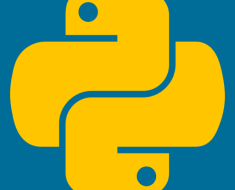In a bustling world like ours, balancing academic and extracurricular activities can be daunting for students. Most learners get overwhelmed with coursework, deadlines, and personal commitments. So, it’s unsurprising that schedule mismanagement is one of the causes of failure among students at all levels. Now more than ever, time management is a skill everyone needs.
But the good news is, you don’t have to do the grunt tasks yourself. Academic work is stressful enough on its own. Why add to it by manually marking calendars, writing to-do lists, and setting reminders? With AI, you can offload these tasks and focus on what matters: your studies.
With the introduction of artificial intelligence, you can easily track tasks, optimize study notes, and get notifications for upcoming deadlines. AI also helps analyze your learning style, creating a study plan that best suits you. This way, you avoid last-minute rushes, make the most of your time, and be as productive as you’ve always wanted to be.

The Role of AI in Time Management
While artificial intelligence might have some drawbacks, it is unquestionably a 21st-century blessing. AI tools for productivity can help you automate repetitive tasks, giving you the leeway to focus on your creative side. For freshmen, knowing what to prioritize can be challenging. AI helps identify tasks that need more time, allowing you to tackle the most pressing assignments first.
Thanks to the advent of AI, a time management table can also be automated to incorporate class timetables, deadlines, and preferred study periods. You don’t have to worry about mixing things up. AI’s got you covered. By embracing the endless possibilities available with artificial intelligence, you’ll be able to balance your academic and social life. AI adapts to your needs, making overall engagements easier to navigate.
Simple AI time-tracking software is all you need to get started. These tools automatically monitor daily activities and suggest better routines for you. They analyze work patterns, predict workloads, and help you make informed decisions. They are like secretaries on steroids. Always working, never tired.
Some examples of AI tools for productivity include:
- Clockwise – one of the best artificial intelligence calendar and scheduling software.
- Superhuman – helps you organize and manage multiple emails.
- Timely – another AI time management tool that’s just great.
- Motion – helps with managing tasks and automatic time blocking.
AI-Powered Scheduling
In the same way, a well-arranged room or workspace gives you a clear head and helps you work better, and organized schedules make your day go smoothly. Imagine how productive you’ll be when you know what to do at every point and follow through.
However, drafting a detailed schedule means no walking in the park. But with AI-powered scheduling, instead of working on timetables yourself, you can let apps do that while you concentrate on the work. AI-powered schedules make time management and productivity easier. They organize meetings, avoid/resolve conflicts, and adapt to cancellations.
They work with calendars, emails, and notes, learning your preferences to create better schedules based on learned priorities and deadlines. If you’re thinking of artificial intelligence scheduling tools that are perfect for you, you should try TimeHero, ReclaimAI, SchedulerAI, Clara, or SideKickAI. They are some of the best AI scheduling tools on the block.
Using AI for Study Planning
One area in which artificial intelligence can help students is the study notes organization. It helps organize class resources based on subjects and topics, formulating materials that are easy to comprehend. If you’re not a fan of lengthy texts, many AI tools generate summaries to help you focus on key points. Sometimes, they provide additional materials for “further reading,” thereby expanding knowledge on the subject.
Some AI study tools create visual representations of different topics. This is a great way to learn for students who understand better with pictures. These also help set realistic and achievable study goals by incorporating methods like the Pomodoro technique for students with short attention spans.
For example, learning platforms like Coursera and Udemy sometimes break lessons into 20-minute chunks to accommodate students with short attention spans. Since learners can provide feedback, classes can be tailored to individual needs. Even popular large language models like ChatGPT and Google Gemini provide learning materials based on past questions asked by users.
Tutor AI is another great tool critical to assisting in study planning. It creates custom courses, thereby helping students achieve more in school.
AI Tools for Productivity
Some popular AI software reputed for helping learners become productive are:
- Clockwise
Clockwise is an AI calendar and scheduling tool which learns how you and your team like to work. It then uses the information learned to create a schedule that works for the team.
- Motion
Are you looking for an AI project manager? Motion is an AI tool that helps you manage projects seamlessly. It uses meetings and to-do lists to craft a fitting schedule for you.
- Timely
For AI time tracking, Timely is a top choice. It works in the background of any computer, recording the hours you spend using work apps. It respects user privacy and doesn’t take screenshots while running.
- TutorAI
TutorAI offers students various courses, from programming to health education and art. Pupils choose topics, input commands, and generate classes.
By helping you do the grunt work, these AI productivity tools help you manage your schedules judiciously. They also assist you in setting realistic and achievable study goals.
Time Management Tables and AI
Time management tables are visual representations of how an individual’s timing schedules are allocated to different tasks. Traditional time management tables usually require manual inputs and updates. While they might serve their purpose, nothing beats artificial intelligence tools. With AI time management tables, you can automatically create and update schedules based on priorities and deadlines.
AI also connects time management tables with other productivity software, helping you create a seamless workflow. By considering past schedules, these tools can recognize activity patterns, allowing you to optimize for the best.
Todoist is an example of an AI tool that incorporates time management tables. It helps individuals and teams manage tasks effectively and consequently increases productivity. Other AI tools that offer similar features are Any.do and Toggl Track.
Organizing Study Notes With AI
Artificial intelligence is an ever-evolving endeavor. It helps students organize and retrieve study notes in various ways. For example, it can transform text-based tutor materials into audio, allowing learners to listen to class resources like podcasts. Some students assimilate better when they hear than through reading.
In the same vein, artificial intelligence helps transcription in real time. During lectures, students can use AI tools to take notes and convert audio messages to texts. By automating note-taking, you can focus on understanding the lecturer at the moment and engaging the material at a later date.
Students can subsequently upload their materials to the Edubirdie website for retrieval at a later date. This way, learners from various universities and colleges can also access class resources from other institutions, thereby promoting knowledge-sharing.
Challenges and Considerations
While artificial intelligence has its perks in time management and study planning, it also has drawbacks. Privacy concerns have been a major downside. AI tools operate on machine learning and analytics, which require a lot of data input. Some students are very skeptical about releasing private information to companies, which is quite understandable.
Another negative aspect of AI is the budget constraints. While there are some free versions you can use, many artificial intelligence tools require you to pay money to access the premium. Of course, not everyone can afford to pay.
While AI is the future, you should balance it with other traditional learning methods. There are some life skills you can only acquire from doing things traditionally.
Final Thoughts
AI affords students many benefits in time management and planning, such as study notes organization, and retrieval. It also helps learners manage their schedules judiciously. While some students are skeptical about using AI, there is no gainsaying that it ultimately improves productivity.
Artificial intelligence is the future. While traditional time management and study planning methods may remain relevant, AI will always be one step ahead.



![[2312.15661] Unlocking the Potential of Large Language Models for Explainable Recommendations [2312.15661] Unlocking the Potential of Large Language Models for Explainable Recommendations](https://aigumbo.com/wp-content/uploads/2023/12/arxiv-logo-fb-235x190.png)
